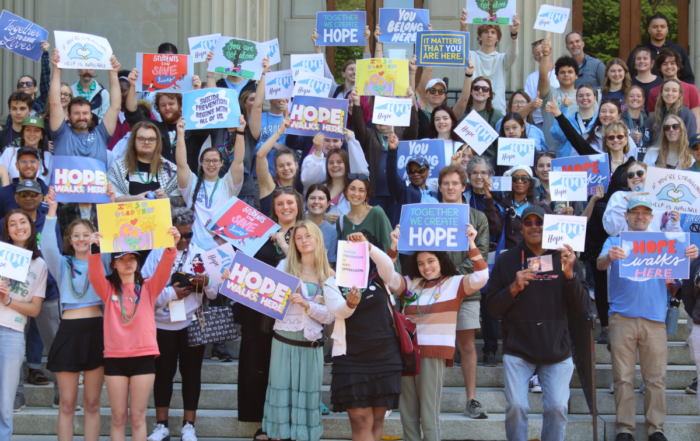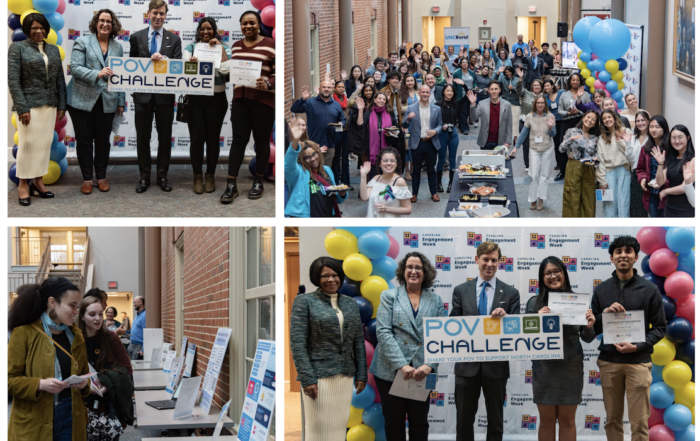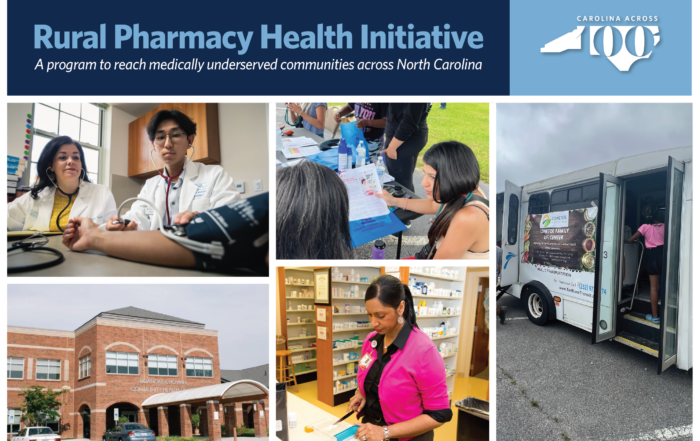Education | Employment
A diversely-abled workforce is an economic development strategy
by Pavani Peri
November 21, 2023

Creating meaningful employment for Opportunity Youth includes focusing on the specific needs and challenges of youth with disabilities. Educating employers on how best to recruit and retain candidates with disabilities while working with disabled persons to seek out jobs and independent living are vital components of workforce development in North Carolina.
North Carolina’s state government understands the economic potential in developing a workforce that includes people with disabilities. NCDHHS’ commitment to educating employers on the benefits of a diversely abled workforce and to strengthening the pipeline of diversely abled candidates will only strengthen the state’s economy.
Kristy Brinson, a Program Specialist for Business Engagement and Kathie Trotter, Division Director for NC Vocational Rehabilitation Services, both under the North Carolina Department of Health and Human Services (NCDHHS), focus on creating meaningful employment opportunities for people with disabilities. While Kristy focuses on educating employers on best practices to recruit and retain disabled employees, Kathie oversees programs that secure employment and independent living opportunities for disabled people. By engaging both employers and employees, NCDHHS is creating strong pipelines to combat labor shortages for employers and secure economic independence for disabled populations.
“For employers, we’re no longer a hidden secret,” says Kristy. “We’ve done a lot of work with employers in our state on the value of hiring disabled people. People with disabilities bring a lot of expertise and openness to their work–something that employers are constantly looking for.”
The current labor shortage has shifted employers’ mindsets around training and finding the perfect candidate with the perfect credentials. “More and more, employers know they have to train people on the job.” says Kristy. This labor trend makes it easier for employers to hire people with disabilities. Additionally, employers are eligible for the Work Opportunity Tax Credit (WOTC). Employers qualify for certain tax credits for hiring a critical number of people with disabilities.
“However, hiring folks with disabilities is also personal. We all know someone who has a disability and what they go through when trying to find meaningful opportunities. The same goes for employers, and we remind them every day that hiring and meaningful work has a tremendous impact both for their companies and their prospective employees.” says Kathie.
There are many incentives and benefits for employers to recruit candidates with disabilities. NCDHHS staff focused on business engagement work to educate employers on:
- The tax credits available,
- Productivity benefits of hiring people with disabilities, and
- How to implement assistive technology to ensure that disabled people are successful in the workplace.
Kathie’s Office works with disabled people to coach them into employment and independent living situations has teams in communities across the state to recruit and work with the relevant people.
“Our offices have staff collocated in various schools, we have targeted websites, social media advertisements, and commercials that are designed to recruit candidates with disabilities who are looking for jobs,” says Kathie. “We also work with advocacy groups across the state to ensure that we’re not missing vital communities that could benefit from our work.”
In fact, NCDHHS has hired candidates with disabilities who have participated in this coaching to show employers the benefits of diversifying their workforce. “If we can show them how successful employees with disabilities have been in our department, we’re more easily able to coach employers into expanding their hiring practices,” says Kristy.
Kathie’s office also provides transitional services to younger students below the age of 21. Programming focuses on pre-employment training services and is offered to students with disabilities so they have the necessary digital and workplace skills to succeed in their careers. By starting earlier in a student’s education career, Kathie’s team can connect disabled students with more employment opportunities.
Carolina Across 100 is a five-year initiative charged by Chancellor Guskiewicz and housed at the School of Government’s ncIMPACT Initiative. This pan-University effort, guided by the Carolina Engagement Council, will form meaningful partnerships with communities in all 100 North Carolina counties to respond to challenges stemming from or exacerbated by COVID-19. “Our State, Our Work” is the first program of Carolina Across 100, connecting young adults to living wage employment opportunities. “Our State, Our Wellbeing” is the second program, focused on improving mental health and reducing suicide in North Carolina.






